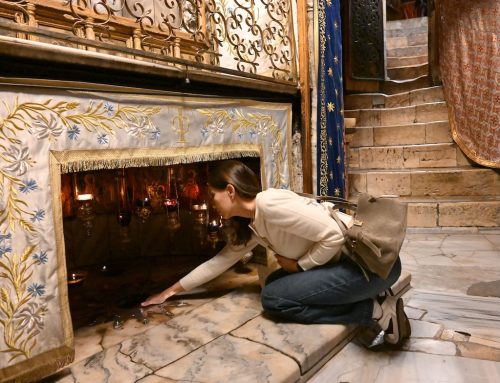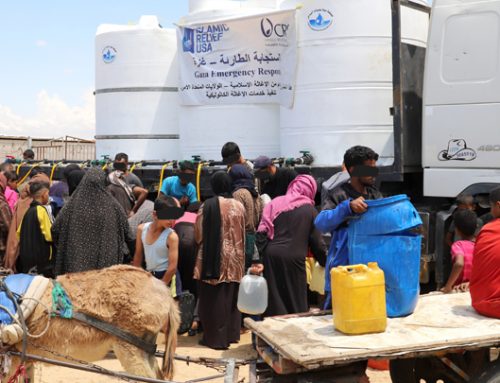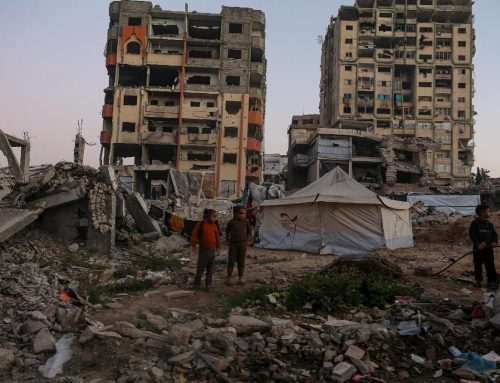 The world in 2014 is an ugly place. Social, political and religious unrest is dominating the news, and not just in an isolated location. Ukraine, Iraq, Gaza, the Central African Republic, Syria… the list seems endless and overwhelming. With almost no unifying theme except the age old motivators of money and power, half the planet seems to be locked in internal conflict and civil war.
The world in 2014 is an ugly place. Social, political and religious unrest is dominating the news, and not just in an isolated location. Ukraine, Iraq, Gaza, the Central African Republic, Syria… the list seems endless and overwhelming. With almost no unifying theme except the age old motivators of money and power, half the planet seems to be locked in internal conflict and civil war. There is no end of opportunities for activist Christians to become engaged. From lobbying to protect 'our own' being persecuted by IS in Mosul to fighting to ensure the world doesn't ignore the horrors taking place in the CAR, believers are giving, campaigning and praying their way around these various global catastrophes. But there's one conflict which is more complicated. One about which many Christians feel anything from awkwardness to utter paralysis.
This conflict is not new. We've turned a blind eye to Gaza for too long.
The situation changes daily – sometimes by the hour – but as I write, Israel and Hamas are in the midst of an uneasy truce, after almost 100 Israelis and close to 2,000 Palestinians have been killed. According to the UN, at least 1,300 of them were civilians.
Of course there are many Christians who have long campaigned on behalf of Palestinians, and many more who have raised grave concerns about what is happening in Gaza specifically. There is also a large group who have taken an opposite view – that Israel is hemmed in by countries that want its extinction. Billions of dollars of US government backing supports this view.
But the awkward truth is that lots of evangelicals have consciously looked away. We've done that because it's complicated – because it isn't as simple as a fight between 'goodies' and 'baddies'. We've done it because we know it's an incredibly divisive subject, and we'd rather not offend or alienate people. But we can't go on ignoring it. Here are just a few of the hurdles we face, and a few thoughts on overcoming them:
PROBLEM #1: It's not as simple as good guys vs bad guys
Hamas – the terrorist army inside the Gaza strip – fire rockets into Israel, often indiscriminately. Yet Israel fights them with disproportionate force, leading to the many civilian casualties. Any justification offered for this activity – including the disputed claims that Hamas is using human shields – lacks any kind of moral resonance. The problem with many discussions about the conflict is that they quickly disappear down this blind alley. No one is the good guy. But the children of Gaza – the UN reports at least 400 of the dead Palestinian civilians were under 16 – definitely aren't the bad guys.
This is why we have a responsibility to really understand what's going on. To read the news (and understand the bias within it), to listen to trusted voices on the ground – on all sides of the conflict, and to talk about the issue in our communities and churches. Understanding comes through discussion, not through burying our heads in the sand. We also have to be keenly aware of the public relations war being waged between the two sides and their supporters. Trusted voices are at a premium, and it's our responsibility to find them.
PROBLEM #2: The fear of accidental antisemitism
To be called an antisemite is – in the light of modern history – one of the most unwelcome slurs one could receive. Nevertheless, the phrase is unfortunately dished out on a regular basis towards those who criticise and campaign against Israel and its military behaviour. The concern that this might be applied to us is enough to ensure that we stay out of the discussion altogether.
Just because someone says something, doesn't make it true. Our fear of being mislabelled shouldn't hold back our pursuit of justice.
PROBLEM #3: We're not clear what the Bible says
For many Christians (often termed Christian Zionists), the Bible clearly states that God has a special plan for Israel which includes a lasting covenant with the physical 'land'. For others, that covenant was fulfilled by the cross (Matthew 5:17). There is a stark contrast between UK and US Christians on this issue. According to Gallup, American Christians are almost universally supportive of Israel. In the UK, the picture is rather different. Twice as many Christians sympathise more with Palestinians than with Israelis, according to this recent survey from Embrace the Middle East.
The various 'camps' are so far apart in their beliefs that sensible conversation between them is rare. Because these views are polarised, and often held by quite passionate people, those who aren't quite sure can struggle to engage with either, or believe that the sensible third way must fall halfway between the two. The Bible becomes 'complicated' and 'problematic', and we assume that as it can be used to support both arguments, it actually supports neither.
Whatever we believe, we can't claim to hold a 'biblical' position if we haven't read scripture. There are no short-cuts; you can argue anything with a proof text. Only by reading the Bible as a whole, and by understanding the grand narrative of Scripture, can we truly understand God's relationship with the land and the people of Israel.
PROBLEM #4: The conflict isn't primarily about Christians
This is perhaps the most difficult reason even to admit to. The majority of people dying in Israel and Gaza are Jews and Muslims. A few days ago, a friend posted on Facebook that 'It does our witness no good when Christians only care about bloodshed when it affects "our own".' As I read it, I felt a deep sense of conviction. Perhaps you do too. The idea that some lives are worth more than others is of course shocking to us – but for some reason we can't help but feel a flicker of increased discontent when the sufferer is connected to us by nationality or religion – that's why plane crash reports always include the number of Britons on board. This inner bias is unbiblical and needs to be challenged.
It's also not entirely true. There is a small Christian community within Gaza. Though it shouldn't matter, this conflict absolutely involves "our own."
It's time we talked about Gaza in our churches. It's important that we include all suffering people, whatever their faith, in our prayers. This conflict badly needs divine intervention – I'm challenged; am I earnestly praying for it?
Perhaps my journey is a lonely one. Perhaps I'm the only evangelical who has taken quite such a long time to wake up. But perhaps not. Maybe like me you feel it's time to sit up and speak up on Gaza.
So then: get informed; don't let fear of being labelled hold you back; earnestly seek God through his word; pray corporately and alone. Some truly awful things are happening in Gaza. It is not an acceptable Christian response simply to look at injustice elsewhere.
By:Christian Today





